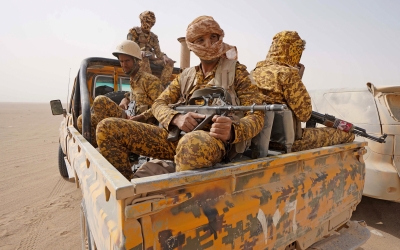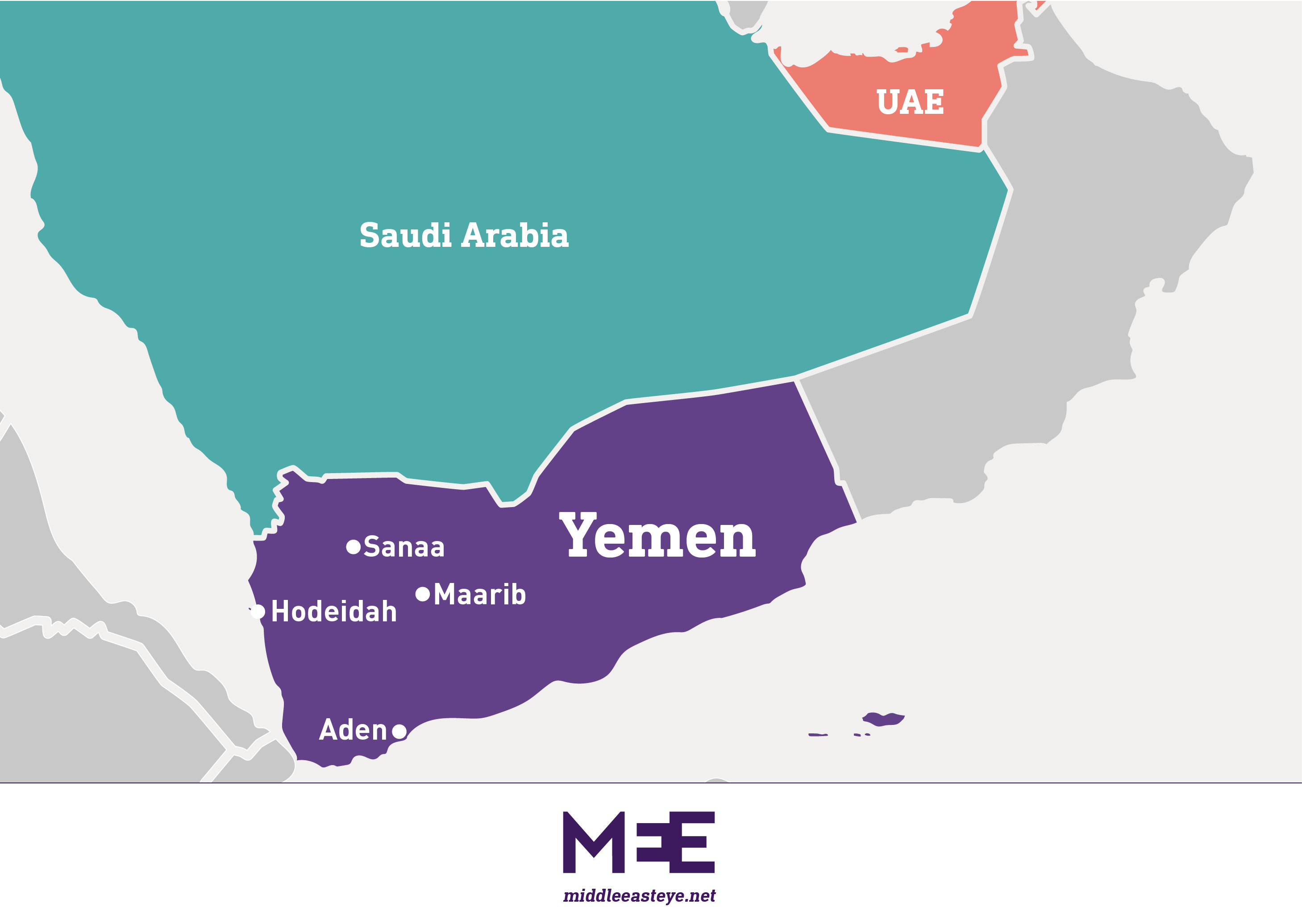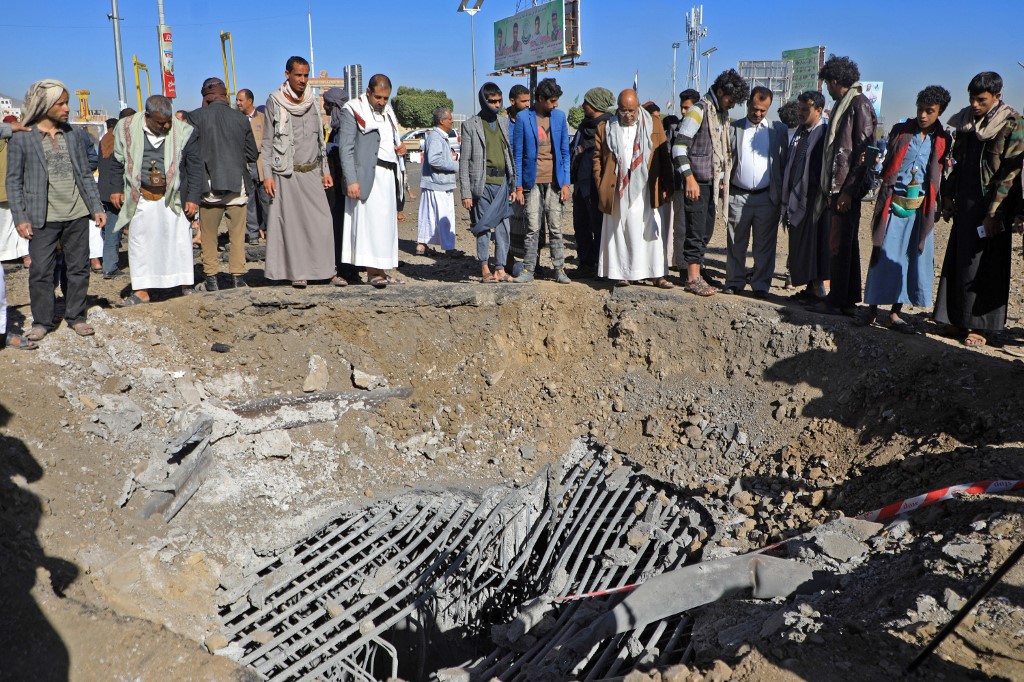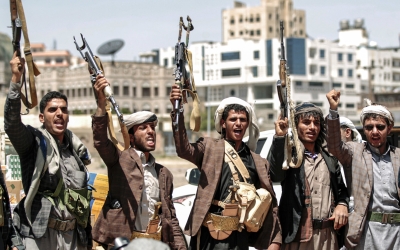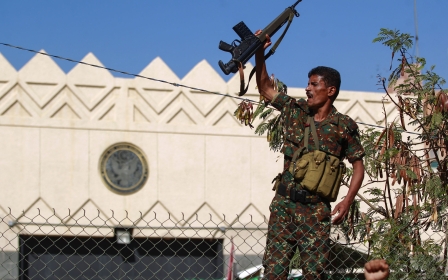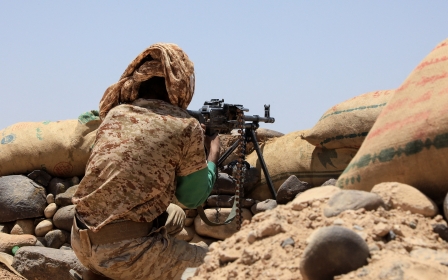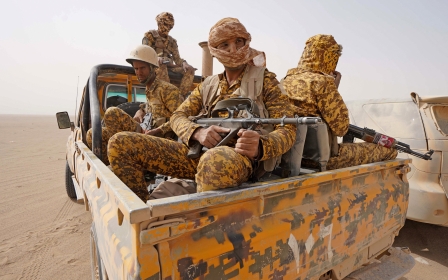Is Yemen's war moving to a 'grudging acceptance' of the Houthis?
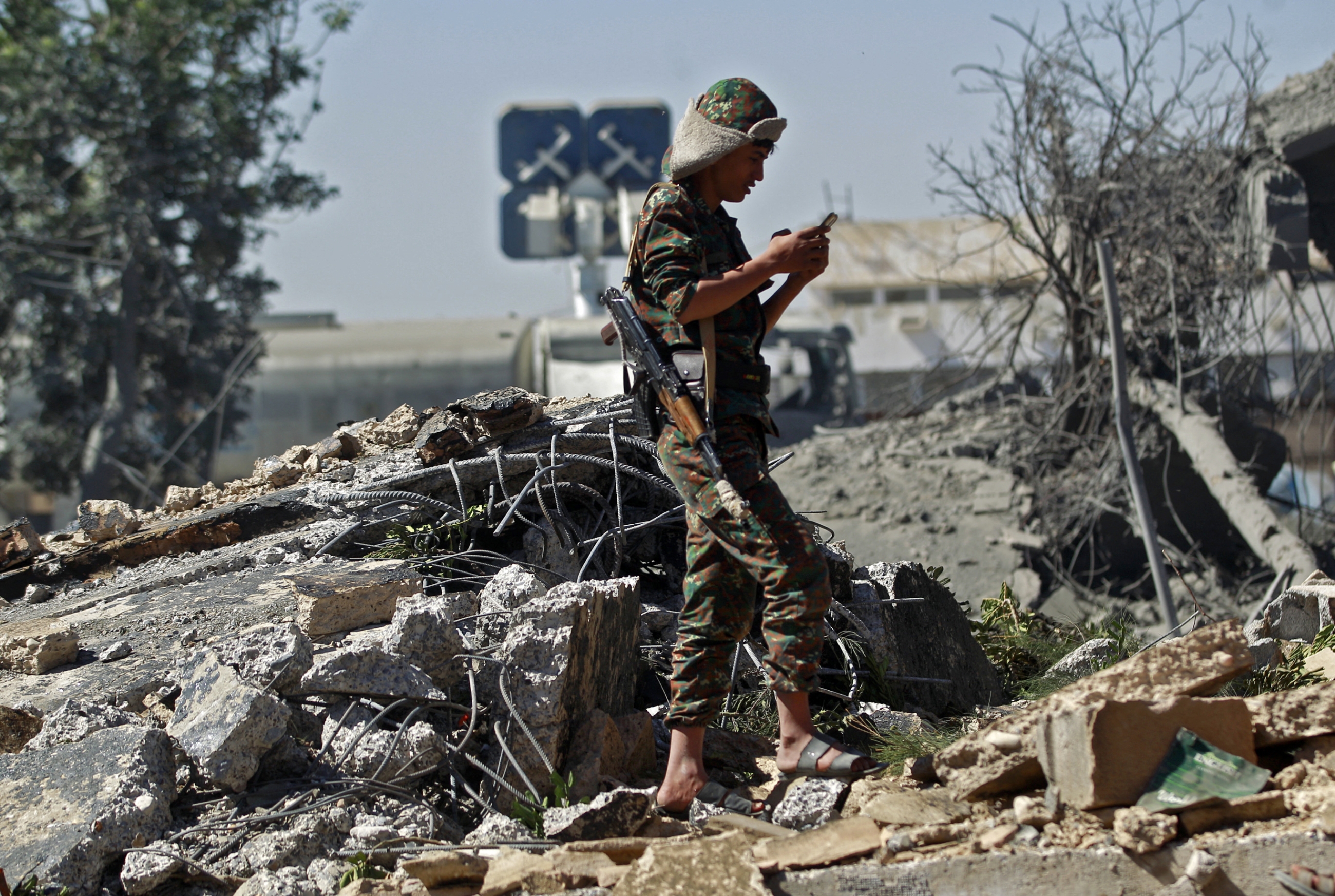
The outcome of a crucible battle in Yemen's years-long war is still uncertain, but as rebels and government forces continue their fight for the city of Marib, repositioning across frontlines suggests the country may already be descending into a new phase of conflict.
For months, Houthi rebels have been trying to seize the strategic, oil-rich city of Marib from Yemen’s internationally recognised government and its Saudi-led, military coalition backers.
The fighting has been bloody on both sides. But for the Houthis, whose leadership has sent waves of fighters - many of them children - across open terrain to assault the fortified city, casualties have been particularly staggering.
Rebel officials in November said that almost 15,000 fighters had been killed over a five-month period alone. More recently, the Saudi-led military coalition has upped its air strikes on the Houthis in Sanaa, the Yemeni capital which the group seized in 2014.
Yet a senior US government official told Middle East Eye that despite the massive casualties, the Houthis “are almost solely focused on capturing Marib” and show “no indication” of halting their military campaign should the city fall into their hands.
They have spurned offers of a ceasefire from Saudi Arabia and responded to the coalition's air strikes by firing hundreds of missiles and drones into the Gulf Kingdom.
But the Houthis lack of traditional air-power has not prevented them from making gains.
After months of fighting, the group has clawed its way to within a few kilometres of the city centre and established a foothold in strategic heights overlooking their urban prize.
Refrains from rank and file supporters of the movement seem to echo the senior US official's assessment.
“Ansar Allah has a plan to liberate the whole country from the Saudi-led coalition and its mercenaries,” a Houthi supporter in Sanaa, who was keen to point out that the Houthis are fighting on other fronts besides Marib, told MEE, using the group's Arabic name.
The Yemeni government is adamant it can hold off the Houthis. Speaking at a security conference in Bahrain on Tuesday, the foreign minister said it was "confident" the city wouldn't fall and warned that such an event would mark "the end of...peace efforts" in the country.
Still, the fact that what was once a government stronghold and beacon of stability in Yemen, has become the centre of a bitter struggle for survival, speaks to how far the Saudi-led coalition's ambitions have sunk.
A senior western military official, speaking with MEE on condition of strict anonymity, said the coalition's inability to break the Houthi assault despite inflicting massive casualties, is leading to “a grudging acceptance” of the group.
“They [the Saudi-led coalition] haven’t given up on the city, but strategic minds will be working overtime,” the person with direct knowledge of the fighting said. “The situation in Marib makes them consider what the future holds and how they shape it.”
Redeployments or withdrawal?
Observers and analysts say there are already signs of war-weariness within the coalition.
Last month, the Saudi military withdrew from a base in the port city of Aden. Likewise, there have been reports of Saudi pullouts from Yemen’s eastern al-Mahra region, and the exit of Emirati forces from a key battlefield in the south.
“The UAE is slowly but surely disengaging from Yemen and the Saudis have reduced their military footprint inside the country,” Mohammed Albasha, a senior Arabian Peninsula analyst at the Navanti Group, told MEE.
Albasha shared satellite imagery, which he claims show the coalition is removing heavy military equipment and shuttering bases as evidence that both nations are “trying to extricate themselves from the protracted conflict”.
'The situation in Marib makes them consider what the future holds and how they shape it,'
- Senior western military official
The coalition has pushed back on claims it is withdrawing, saying troop movements are part of standard military redeployments. And Yemeni fighters on the frontlines say their international backers are still in the game.
"The coalition [will not] disappoint us as Yemen and neighbouring countries will be impacted by the Houthis if they take over more territory," a soldier in the Saudi and Emirati-backed joint forces, told MEE.
Even if the coalition is not walking away from Yemen, officials say it is repositioning troops in the event Marib falls. "They need to secure what equity (ground) they have," the military official said.
Such movements have led to repercussions across the country. Earlier this month, the UN envoy to Yemen warned of a “new chapter" in the war which looks “even more fragmented and bloody”.
More than 6,000 people were displaced by fighting in November when coalition forces abruptly withdrew from territory south of the port city of Hodeidah, clearing the way for Houthi rebels to fill the gap.
The coalition said it was maintaining a "flexible" stance to deploy resources where they were needed more badly, but the UN, which was not informed of the move beforehand, said it marked a “major shift” in the war.
The Saudi-led coalition’s war efforts in Yemen have long been criticised by the international community. In the US, lawmakers have sought to block weapons sales to Riyadh over its role in Yemen, and one of the Biden administration’s signature moves upon taking office was announcing an end to US offensive support for its Arab partners.
But any drawdowns now would be occurring without a ceasefire in place and at a time when US and UN efforts to reach a political settlement have all but collapsed. And most agree the fighting in Yemen will not simply end if the coalition walks away.
Speaking at an event in Washington last week, Anwar Gargash, diplomatic adviser to the UAE’s president, said Yemen could descend into a “vacuum” with local actors "thinking tactically", as they scramble the battlefield map instead of engaging in "strategic" thinking to resolve the conflict.
'The Houthis show 'no indication' of halting their military campaign should Marib fall'
- Senior US government official
The comments are particularly apt coming from the UAE.
Frustrated with fighting in a war it saw no chance of winning outright, in 2019 the Gulf sheikdom announced the withdrawal of its forces.
That hasn't meant it walked away. Instead of relying on a heavy military footprint, it has preferred to wield influence by supporting a host of proxies mostly situated along Yemen’s Red Sea coast and the Gulf of Aden.
Saudi Arabia may be on track to pursuing a similar model. “Support both above and below the table for opposition groupings” will be a bedrock of strategy for the coalition, the military official said.
Securing the south
Some analysts see the war's trajectory harking back to Yemen's old geography. At one time the country was divided into independent northern and southern states. Today, the Houthis have carved out a de facto state in the north, while a disparate mix of coalition forces hold the south.
Gregory Johnson, an analyst at the Gulf States Arab Institute in Washington DC, believes those divisions are going to last some time. "It's hard to envision a scenario where the Houthis are militarily defeated or compelled to share power," he tells MEE, adding, “I don't think Yemen will be reconstituted as a single state anytime soon.”
Officials and analysts say securing the south will be crucial for the coalition should the Houthis take Marib, but not without difficulty.
The UAE and Saudi Arabia support rival camps in the territory. At times they are just as prone to clash with each other as they are to fight the Houthis.
In 2019, the Emirati-backed Southern Transitional Council (STC), a separatist movement that aims to restore an independent state in southern Yemen, fought a pitched battle with the Yemeni government for control of the port city of Aden.
With an eye towards rebel advances, Saudi Arabia has been working to defuse tensions between the two sides to "prioritise the fight against the Houthis", Paolo Napolitano, a senior analyst at Dragonfly Intelligence said.
'Neighboring countries will be impacted by the Houthis if they take over more territory'
- Fighter in the Saudi and Emirati-backed joint forces
The senior US official acknowledged divisions between the Saudi and Emirati camps, adding there was a concern they could undermine unity against the Houthis as the US continues to push for a ceasefire. “We [the US] want all the parties in Yemen talking with a commitment to a political solution”.
An inability to secure the south could have repercussions for the wider region as well.
The UAE's strategy in Yemen has been to use its proxies to secure vital coastline, including territory on the Arabian peninsula's side of the Bab-el-Mandeb, a crucial waterway in the Red Sea through which 10 percent of global trade passes.
Even as the Houthis continue with cross border missile and drone attacks on Saudi Arabia’s hinterlands, the senior US official says the movement is looking to increase its maritime capabilities with boat bombs and mines.
As fighting flared around the port city of Hodeidah last month, the US conducted a separate naval exercise in the Red Sea with Israel and its Gulf allies, the UAE and Bahrain. Although the drill was not directly related to the Houthis, it underscored the importance of Yemen's neighbourhood for freedom of navigation and the flow of trade.
Earlier this month, the US fifth fleet said it has successfully test-fired a weaponised laser off the coast of Yemen, which could be used against unmanned, bomb-laden boats, deployed by the Houthis.
This article is available in French on Middle East Eye French edition.
Middle East Eye propose une couverture et une analyse indépendantes et incomparables du Moyen-Orient, de l’Afrique du Nord et d’autres régions du monde. Pour en savoir plus sur la reprise de ce contenu et les frais qui s’appliquent, veuillez remplir ce formulaire [en anglais]. Pour en savoir plus sur MEE, cliquez ici [en anglais].


